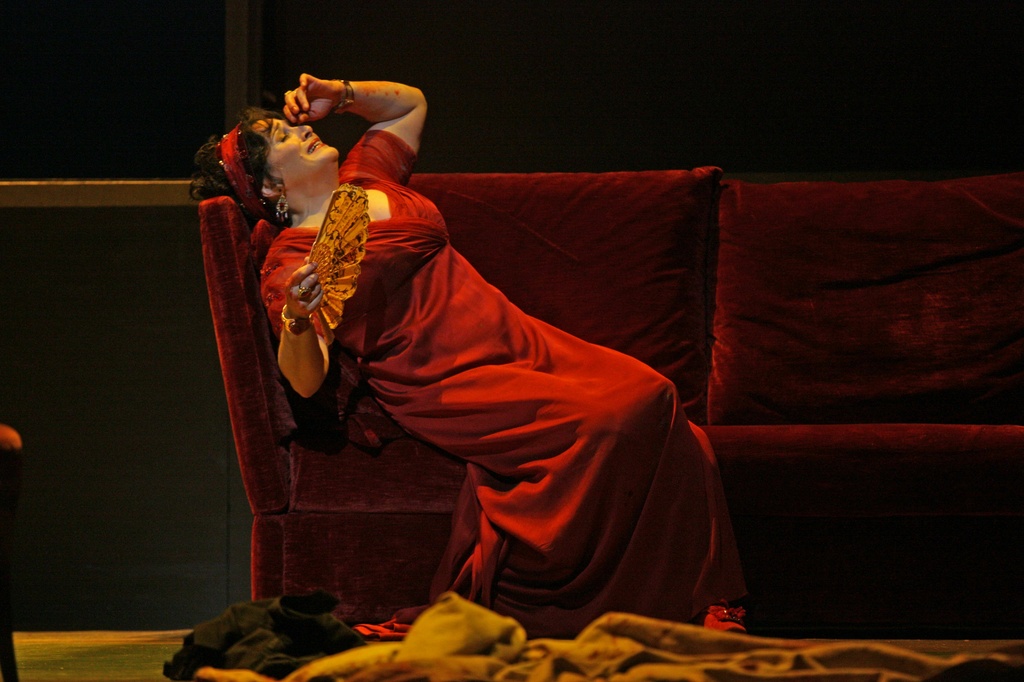
The Grand Opera Life
The modern era, like the Renaissance, sees life as theater. The shift to this view from life lived before God’s eye meant that acting before men became a way of life. Putting on a performance for the benefit of important people, not sincerity, became paramount.

- R. J. Rushdoony
Chalcedon Report No. 338, September 1993
Philippians 4:5 tells us, “Let your moderation be known unto all men. The Lord is at hand.” Moderation in the Greek is a word meaning reasonableness. “The Lord is at hand” means, “The Lord is near (engus),” meaning that He is near either in time or place; this is usually taken to mean the Second Coming, but there is no reason to deny that it means other than that we are under God’s very present and watchful eyes. Read in this way, it means that we must live always before God, governed by His law-word and manifesting a reasonable, conscientious, and God-governed life.
Why is this important? The Puritans changed conduct wherever their influence went from a flamboyant and hyperemotional lifestyle to a reasonable and restrained one.
The modern era, like the Renaissance, sees life as theater. More than one scholar has shown that the shift to this view from life lived before God’s eye meant that acting before men became a way of life. Castiglione’s Courtier counseled putting on a performance for the benefit of important people. Not sincerity but performance became paramount.
This new lifestyle became embodied in opera, “heroic” plays, theater, and court life. Important people dressed and lived theatrically, and their reality was not God’s truth but a world of appearances.
The results are history. All the arts were used to further the theatrical, and a sharp line separated the middle class with its sobriety from the aristocracy and their contempt for middle-class restraints.
With the development of the cinema, the overblown dramatic life was popularized for all. The limitation of silent films meant that over-dramatization was used to convey the message. This over-dramatization did not disappear with sound films. In fact, whether in films or on television, this hyper-emotionalism and supercharged activity has become more commonplace.
The results for everyday life have been devastating. I am old enough to recall the pre-film era in rural America. The wild emotionalism and outbursts common to television and film plays were unknown in everyday life. Now, however, young children mimic the tantrums of film life, and youth and adults act in a way which once would have been regarded as crazy and intolerable. All too many now display emotional outbursts that are really pathological and reflect the craziness of film life. Normal living has been deluged with supercharged emotionalism in too many families. The grand opera life is hell for families; it means tantrums and outbursts have replaced reasonableness, and young and old storm their irrational ways through life.
“The Grand Opera Life” had a deep influence on royal court architecture, and it can still be seen in statist architecture. Life was turned into melodrama, and, in the nineteenth century, men raged and ranted sometimes, as witness Shelley, and women fainted to make a point. In differing forms, twentieth-century peoples are also given to melodrama. Present-day black and white youth act in ways their great-grandparents would find incomprehensible.
We must stress to this generation that we are God’s creatures, and we live, move, and have our being in His presence, before His eyes. We can put on an act that will fool men, but never God. We must live with reasonableness in His presence and in terms of His law-word. This is what Philippians 4:5 is all about. It is time we paid attention.

- R. J. Rushdoony
Rev. R.J. Rushdoony (1916–2001), was a leading theologian, church/state expert, and author of numerous works on the application of Biblical law to society. He started the Chalcedon Foundation in 1965. His Institutes of Biblical Law (1973) began the contemporary theonomy movement which posits the validity of Biblical law as God’s standard of obedience for all. He therefore saw God’s law as the basis of the modern Christian response to the cultural decline, one he attributed to the church’s false view of God’s law being opposed to His grace. This broad Christian response he described as “Christian Reconstruction.” He is credited with igniting the modern Christian school and homeschooling movements in the mid to late 20th century. He also traveled extensively lecturing and serving as an expert witness in numerous court cases regarding religious liberty. Many ministry and educational efforts that continue today, took their philosophical and Biblical roots from his lectures and books.